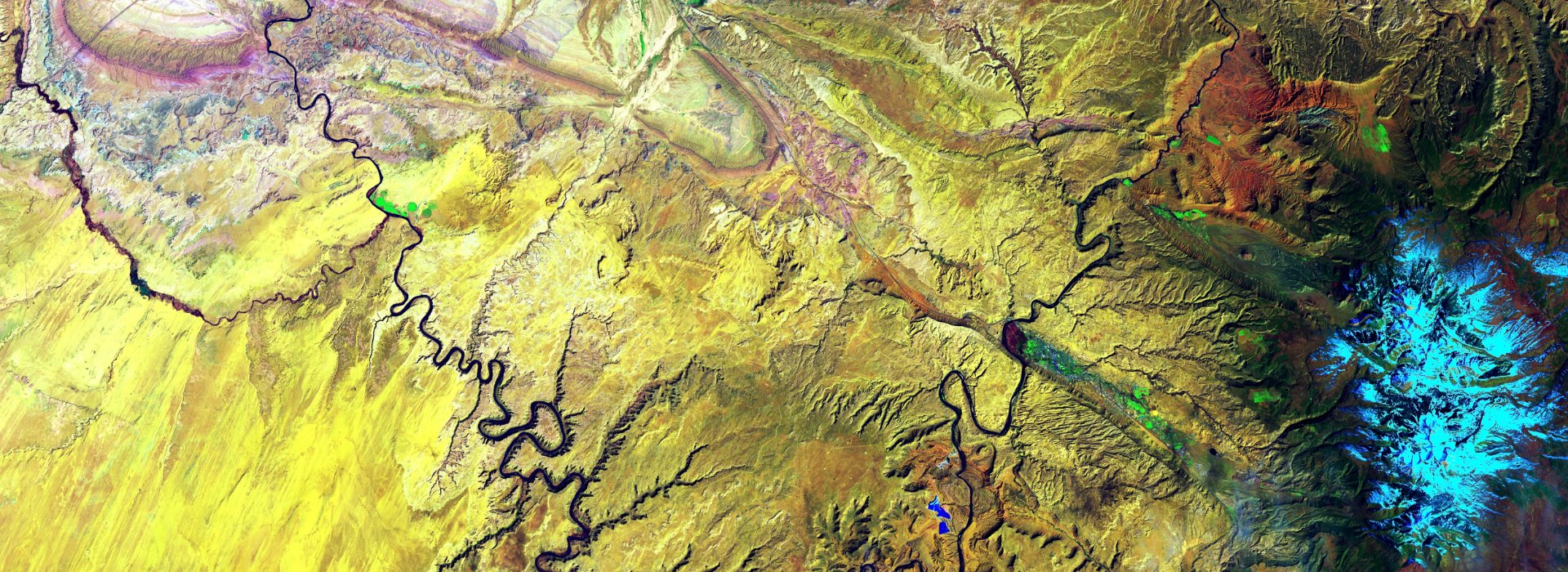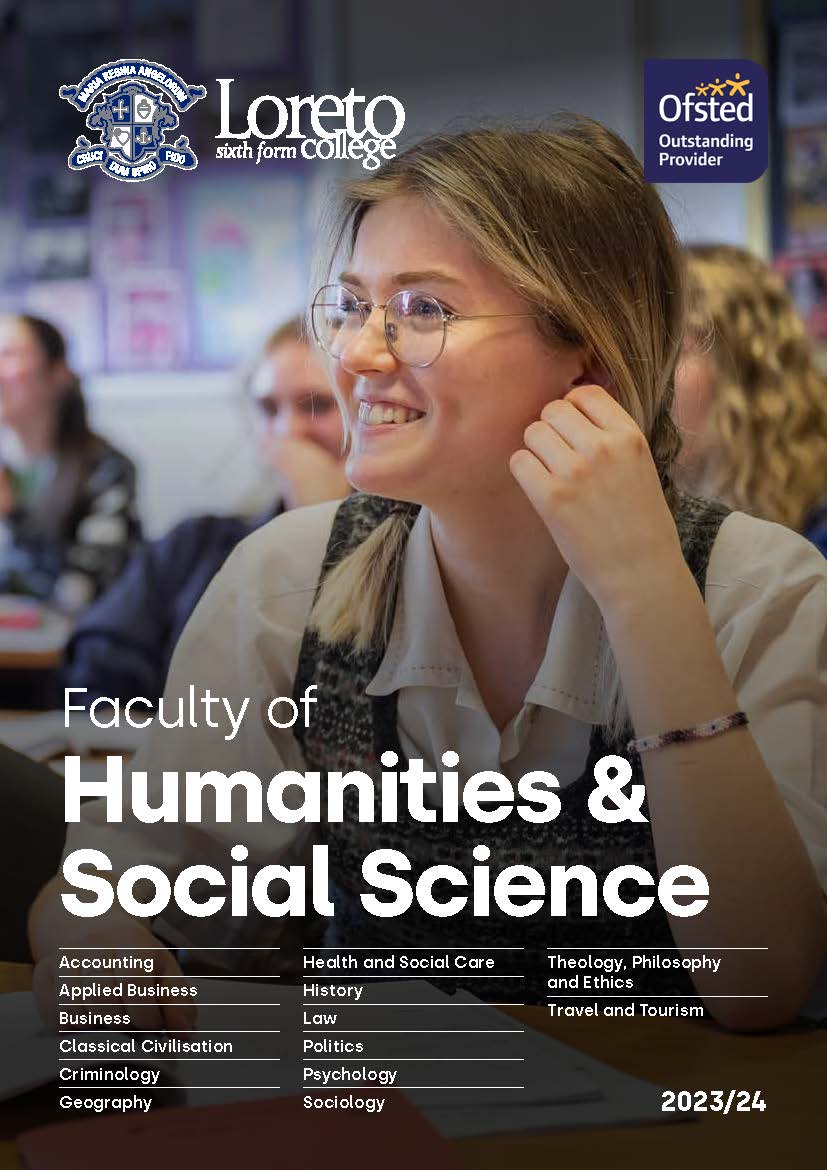
A Level Geography
- How can we combat climate change?
- How do physical forces shape our planet?
- Is globalisation a force for good?
As a geography student you will tackle these questions and many more like it, covering six key units. If you enjoy analysing data, seeing the world from different perspectives and want to make our planet a better place then Geography could be a great subject for you.
Exam board: AQA
Components
Component 1: Physical Geography
Percentage of total marks: 40%
Method of assessment: Written exam 2 hours 30 minutes
The paper is made up of structured short and extended questions and an essay. It tests your knowledge and understanding of Water and Carbon Cycles, Coastal Systems and Landscapes and Hazards.
Component 2: Human Geography
Percentage of total marks: 40%
Method of assessment: Written exam 2 hours 30 minutes
This paper is paper made up of structured short and extended questions and an essay. It tests your knowledge and understanding of Global Systems and Global Governance, Changing Places and Resource Security.
Component 3: Geography fieldwork investigation
Percentage of total marks: 20%
Method of assessment: Fieldwork NEA coursework
An individual investigation, which must include data collected in the field.
Skills
This course will equip you with a wide range of skills highly valued by universities and employers. Many of these skills are transferable to other courses of study such as essay writing, statistical skills, analytical skills, cartographic skills, graphical skills, problem solving, decision making, team working, etc.
Careers/destinations
Geography is relevant to so many career paths such as urban planning, hydrologist, volcanologist, disaster relief, civil engineering, overseas development, environment agency analyst, environmental campaigner and to many other careers such as accountancy, journalism, marketing and teaching.
Geography
Why should I choose Geography?
There has never been a better or more important time to study geography. With growing interest in issues such as climate change, urban growth, natural hazards, environmental degradation and globalisation, geography is one of the most relevant courses you could choose to study. Geography will give you the opportunity to find out about many aspects of change on our planet, a knowledge base that will inform the rest of your life. The skills gained will be valuable to future employers and are highly relevant for a range of university courses. Geography is one of the most valued subjects by the UK’s top universities and is in the top two subjects for gaining employment.
What other courses would you recommend studying with Geography?
Due to the broad and diverse nature of Geography, it combines well with most other A Level and BTEC courses. In particularly, some of the content links to sciences such as Biology and Chemistry, Maths, Economics, Politics, Law and Business Studies. Some of the skills required such as essay writing means that Geography complements subjects such as English, History and Psychology.
What fieldwork opportunities are there at Loreto?
As part of the course, all students have to complete 4 days of compulsory fieldwork. In the Lower Sixth year, students visit Llandudno and Colwyn Bay in North Wales to look at coastal processes and coastal management. There is also a trip to Salford Quays to examine how the area has changed and to evaluate the success of urban regeneration schemes. Students choose one of four areas to conduct their individual fieldwork investigations (coursework) primary data collection. These areas are North Wales, the Sefton Coast, Greater Manchester and the Peak District. In the Upper Sixth year, students visit the River Bollin in East Cheshire to conduct river measurements and examine flood risk. In addition, the department offers an optional international fieldtrip each year. Each of Reykjavik in Iceland and California in the USA are visited on a biennial basis.
Where does Geography take you?
The vast majority of our students go on to study at university, with significant numbers continuing to study Geography or something related such as Geology or Environmental Science. Geography graduates are highly employable. In part, this is because the subject combines knowledge of science and an understanding of the humanities. The diversity of Geography means that students go on to follow a broad range of career paths. Some of these are directly related to Geography such as planning, architecture, conservation, sustainability, other sectors include management, administration, finance, media, teaching, etc.
Why should I study Geography at Loreto?
The Geography department at Loreto is simply outstanding. Staff work extremely hard to ensure that students attain the best possible outcomes. The department has a track record of delivering excellent results. Students enjoy the subject, with large numbers continuing to study the subject at university. In recent years, several students have gone on to study geography at Oxbridge. Staff in the department are passionate and enthusiastic about their subject, and use high quality engaging teaching and learning resources, with a student-centred approach. The department offers a broad range of local, regional and international fieldwork opportunities. Students also benefit from the department’s links to organisations such as Manchester University, Manchester Metropolitan University and the Manchester Branch of the Geographical Association which provide additional opportunities for students to further their interest in the subject.
What are the main differences between GCSE and A Level Geography?
There are several differences. Whilst some of the content will be similarly to what you have covered at GCSE, it will be taught at a higher level with greater levels of detail. Some topics and case studies within the specification will be new to you. There are some advanced methods of data representation that you will have to get to grips with along with some statistical skills. The assessment will be more robust, in particularly, like most A Level subjects, you will write essays. You will have to be evaluative and reflective in your work and demonstrate that you can ‘think like a geographer’ making connections between different aspects of the subject. A significant difference is the coursework element of the course. You will complete an independent fieldwork investigation towards the end of the Lower Sixth and at the start of The Upper Sixth. This will require you to identify a geographical question in a particular location, establish hypothesis, design a methodology, collect primary data, present and analyse your findings, draw conclusion and evaluate what you have done. The course is structured and taught so that you develop the understanding that you need and the skills required to attain the best possible outcomes.
What sort of skills will I develop by studying Geography?
One of the great strengths of Geography is that it develops a multitude of skills highly valued by universities and employers alike. Many of these skills are transferable. These skills include problem solving, decision making, analysing data, primary data collection, presenting data, cartographical skills, essay writing, reasoning, etc.
What qualifications do I need to be able to study Geography?
You will need to meet the college’s general requirements of 6 GCSE’s at grades 9 - 4 including two of English, Maths and Science. Two grades should be at least grade 6. If you have taken Geography at GCSE level you will need a grade 5 or better. The department welcomes students who have not had the opportunity to study GCSE Geography. You should have a genuine interest in the subject and be curious about the world in which you live and how it works.
What is a typical geography lesson like?
Lessons are well planned, engaging and student orientated. The department uses a wide variety of teaching and learning approaches including independent research, pair work, group work, role plays, card sorts, ranking exercises, videos, mind mapping, graphical work, statistical analysis, photograph interpretation, etc. The department aims to ensure that lessons are up to date, varied, interesting and develop a diverse range of skills.
What support will I receive by the department?
Staff work very hard to ensure that all students are welcomed into the department and supported throughout their time at the college. Students receive detailed constructive feedback following assessments encouraging further progression. At regular intervals during the year, staff meet with students individually to discuss their progress and identify areas for development. The department provides a wide range of independent resources for students to access either in college or remotely from home. At suitable points in the year, support is provided to students who choose to apply for Geography related programmes at university. The department has close links with a range of universities in the region. Students are encouraged to join the Manchester branch of the Geographical Association enabling access to additional lectures, quiz nights and debate forums. The department provides drop in sessions and additional support classes to students that require additional support.
